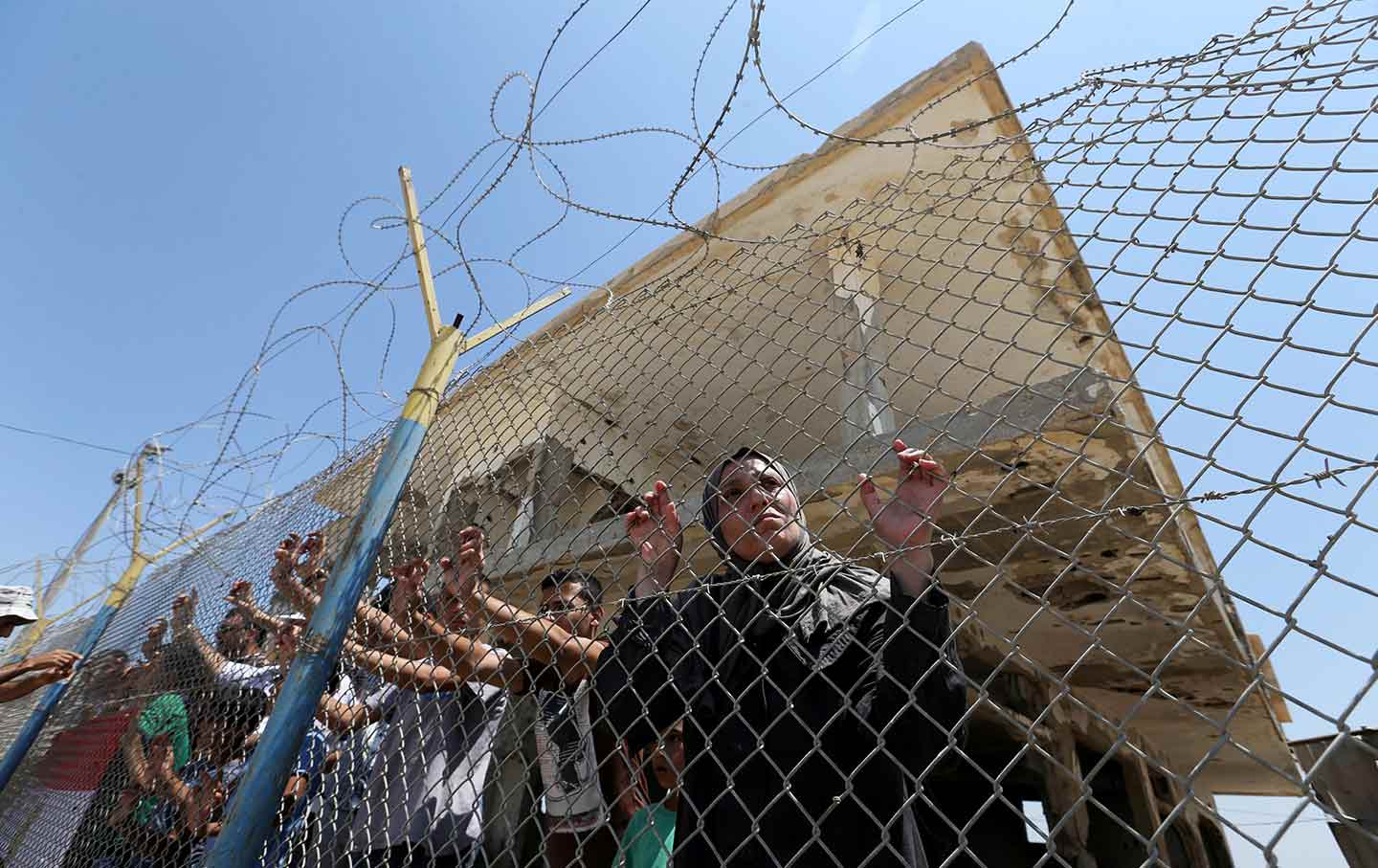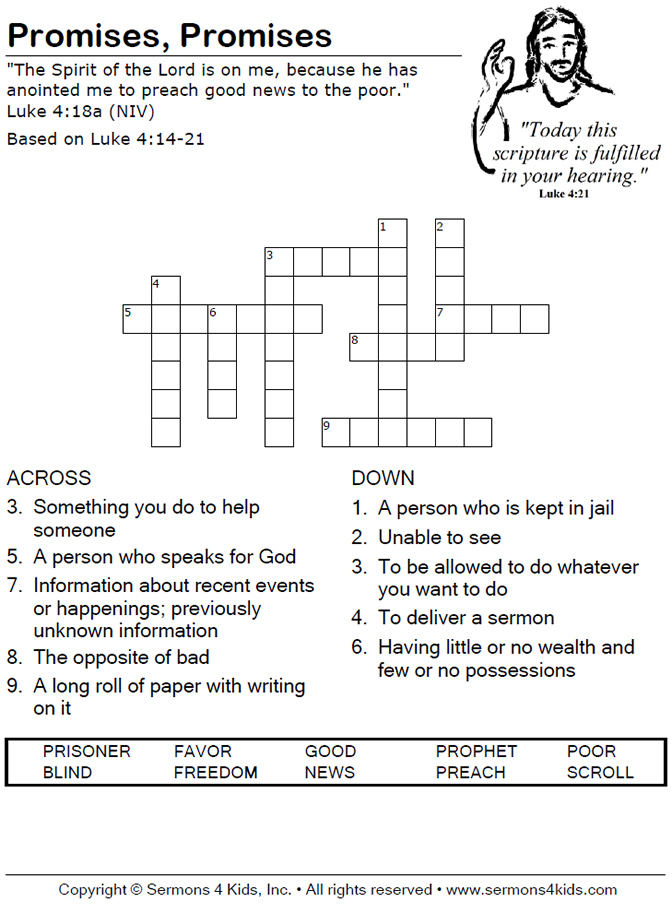The Impact Of Israel's Blockade On Gaza: A Crisis Of Hunger, Sickness, And Crime

Table of Contents
The Hunger Crisis in Gaza: A Consequence of Restricted Access
The severe restrictions imposed by Israel's blockade on Gaza have created a profound food insecurity crisis. The limited access to essential food items has devastating consequences for the population's health and well-being.
Food Insecurity and Malnutrition
The blockade severely limits food imports, drastically impacting both the availability and affordability of essential food items. This has led to alarming rates of malnutrition, particularly among children.
- High rates of malnutrition: The UN reports consistently high rates of malnutrition, especially among children under five, exceeding 30% in some areas. This lack of proper nutrition leads to stunted growth, weakened immune systems, and increased vulnerability to disease.
- Reliance on food aid: A significant portion of the Gazan population relies heavily on food aid from international organizations to survive. This aid, while crucial, is often insufficient to meet the daily caloric needs of individuals and families.
- Insufficient calories: Many Gazans struggle to obtain the necessary calories for daily energy needs, leading to chronic hunger and weakness.
- Lack of diverse and nutritious food options: The limited availability of diverse food options means that many lack access to vital vitamins and minerals, exacerbating the nutritional deficiencies within the population.
Impact on Agriculture and Livelihoods
The blockade also severely restricts agricultural inputs, including seeds, fertilizers, and pesticides, crippling Gaza's agricultural sector. This further exacerbates food insecurity.
- Reduced agricultural production: The limitations on agricultural inputs have drastically reduced agricultural production, limiting the availability of locally grown food.
- Unemployment among farmers: Thousands of farmers have lost their livelihoods due to the decline in agricultural production, adding to the overall economic hardship.
- Limited access to markets: Restrictions on movement and access to markets further hinder the ability of farmers to sell their produce, compounding their economic struggles.
- Destruction of farmland due to conflict: Repeated conflicts and military actions further damage farmland and agricultural infrastructure, making it even more difficult to produce food locally.
The Deteriorating Healthcare System: A Direct Result of the Blockade
The blockade’s impact on Gaza's healthcare system is catastrophic. The restricted access to essential medicines and equipment has created a public health emergency.
Limited Access to Essential Medicines and Equipment
The blockade significantly restricts the import of medical supplies and equipment, leading to critical shortages in hospitals and clinics.
- Shortages of essential medicines: Hospitals frequently face shortages of essential medicines, including those for chronic diseases and emergency care.
- Lack of advanced medical technology: The lack of access to advanced medical technology limits the ability to provide specialized care and treatment for many conditions.
- Insufficient hospital beds: Overcrowding and insufficient hospital beds further constrain the ability of the healthcare system to cope with the high demand.
- Difficulty accessing specialized care: Patients often face significant challenges in accessing specialized care, such as oncology or cardiology, due to the limited availability of equipment and trained professionals.
Impact on Public Health Outcomes
The consequences of limited access to healthcare are devastating, leading to a sharp increase in preventable diseases and chronic health issues.
- Rising rates of infectious diseases: The lack of sanitation, clean water, and medical supplies contributes to the spread of infectious diseases.
- Increase in chronic conditions due to lack of treatment: Many chronic conditions, such as diabetes and heart disease, are left untreated due to shortages of medicines and medical equipment.
- High infant and maternal mortality rates: The inadequate healthcare infrastructure and limited access to prenatal and postnatal care contribute to high infant and maternal mortality rates.
- Psychological trauma among the population: The ongoing blockade and its consequences have led to widespread psychological trauma and mental health issues among the population.
The Rise of Crime and Instability: A Social Consequence of the Blockade
The economic hardship and despair caused by the blockade have contributed to a significant rise in crime and social unrest in Gaza.
Economic Hardship and Unemployment
The blockade has crippled Gaza's economy, leading to widespread unemployment and poverty, creating fertile ground for criminal activities.
- High unemployment rates: Unemployment rates in Gaza are exceptionally high, with a large portion of the population struggling to find work.
- Poverty: Widespread poverty forces many Gazans into desperate situations, increasing the likelihood of engaging in criminal activities for survival.
- Lack of economic opportunities: The limited economic opportunities within Gaza contribute to the cycle of poverty and crime.
- Desperation leading to criminal activities: The desperate conditions under the blockade push many individuals to engage in criminal activities, such as theft and drug trafficking.
Social Unrest and Political Instability
The prolonged blockade fuels social unrest and threatens political stability, exacerbating the existing tensions within the region.
- Increased tensions between different factions: Economic hardship and political frustration can fuel tensions between different groups and factions within Gaza.
- Protests and demonstrations: The blockade has been a significant trigger for protests and demonstrations, often met with harsh responses.
- Lack of faith in governing bodies: The inability of the governing bodies to alleviate the suffering caused by the blockade has led to a decline in public trust.
- Potential for increased conflict: The dire situation created by the blockade increases the potential for further conflict and violence.
Conclusion
Israel's blockade on Gaza has had a devastating and multifaceted impact on the lives of its inhabitants. The interconnectedness of hunger, sickness, and crime, all stemming from the blockade, creates a humanitarian crisis and a breeding ground for instability. The blockade is not only a humanitarian crisis but also a major driver of instability in the region. We must demand an end to Israel's blockade on Gaza. Support organizations working to provide humanitarian aid to Gaza, and contact your elected officials to advocate for policy changes that will ensure humanitarian access and alleviate the suffering of the Gazan people. Only through concerted international pressure can we hope to end this devastating blockade and bring relief to the millions suffering under its weight.

Featured Posts
-
 Nyt Spelling Bee Strands April 12 2025 Complete Gameplay Guide
May 10, 2025
Nyt Spelling Bee Strands April 12 2025 Complete Gameplay Guide
May 10, 2025 -
 Frantsiya I Polsha Novoe Oboronnoe Soglashenie Signal Dlya Trampa I Putina
May 10, 2025
Frantsiya I Polsha Novoe Oboronnoe Soglashenie Signal Dlya Trampa I Putina
May 10, 2025 -
 Whoops Free Upgrade Broken Promises And User Frustration
May 10, 2025
Whoops Free Upgrade Broken Promises And User Frustration
May 10, 2025 -
 Nyt Strands Hints And Answers Tuesday March 4 Game 366
May 10, 2025
Nyt Strands Hints And Answers Tuesday March 4 Game 366
May 10, 2025 -
 Young Thugs Back Outside Everything We Know About The Upcoming Album
May 10, 2025
Young Thugs Back Outside Everything We Know About The Upcoming Album
May 10, 2025
